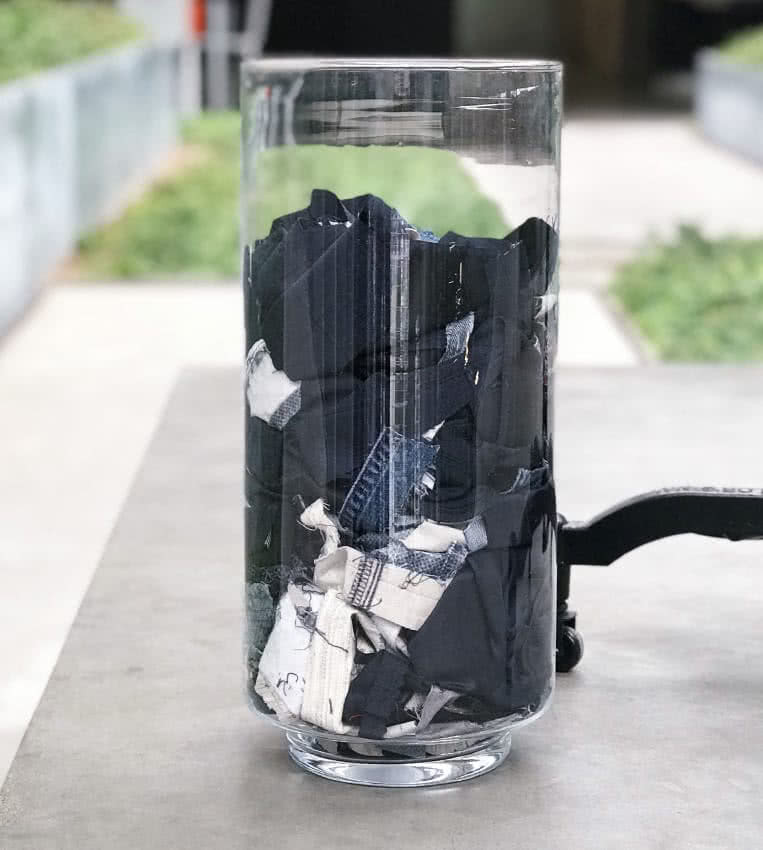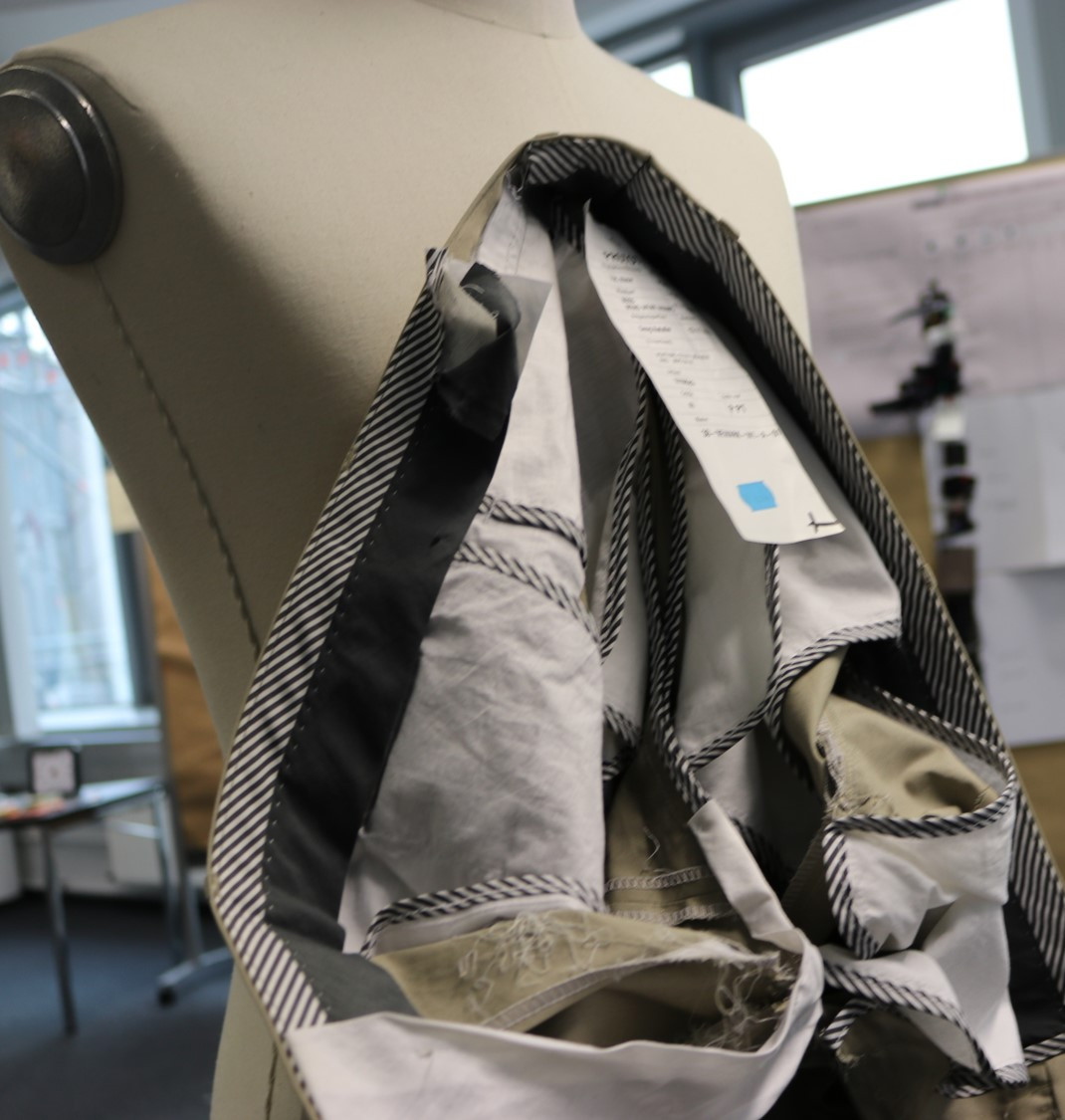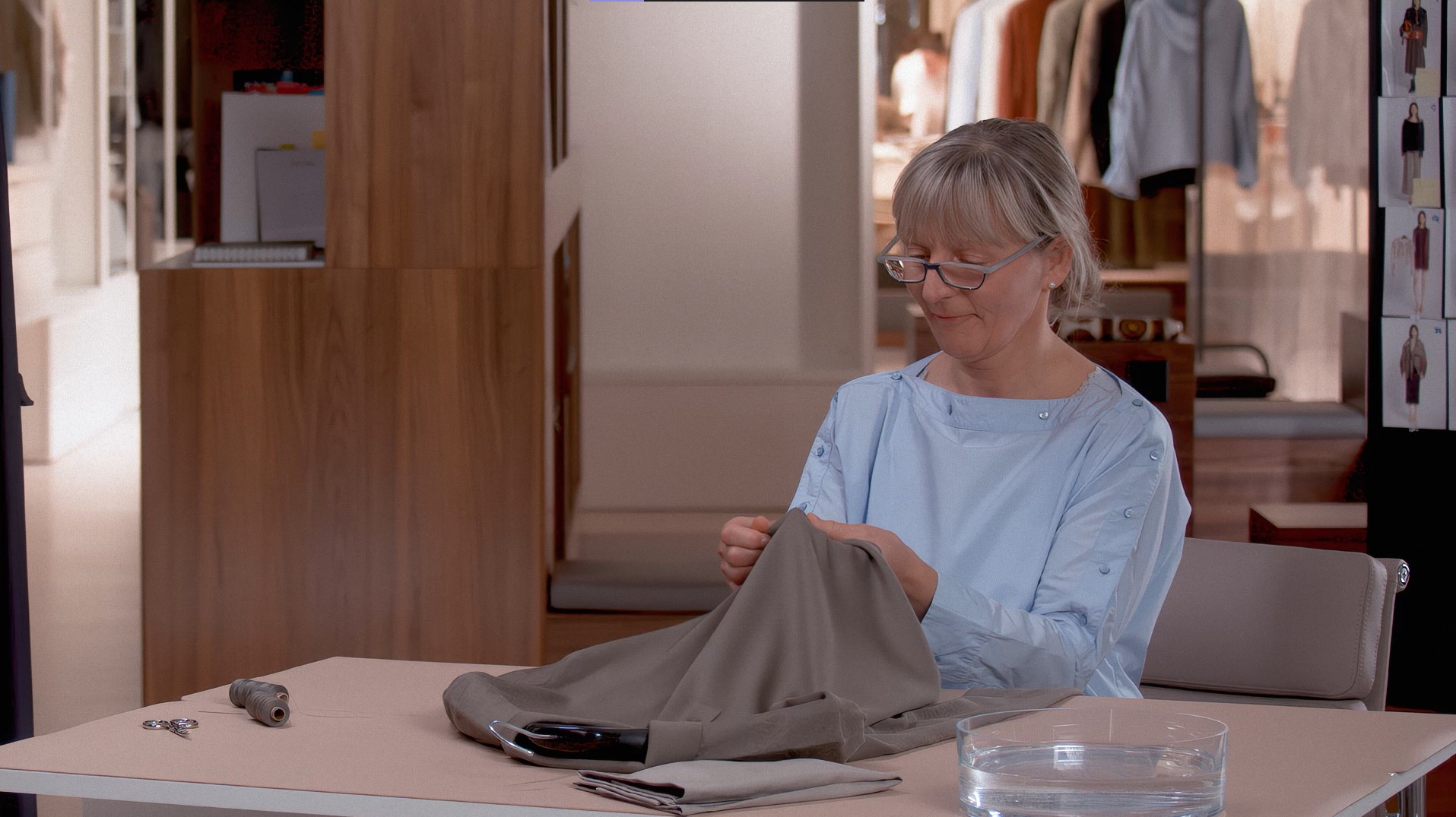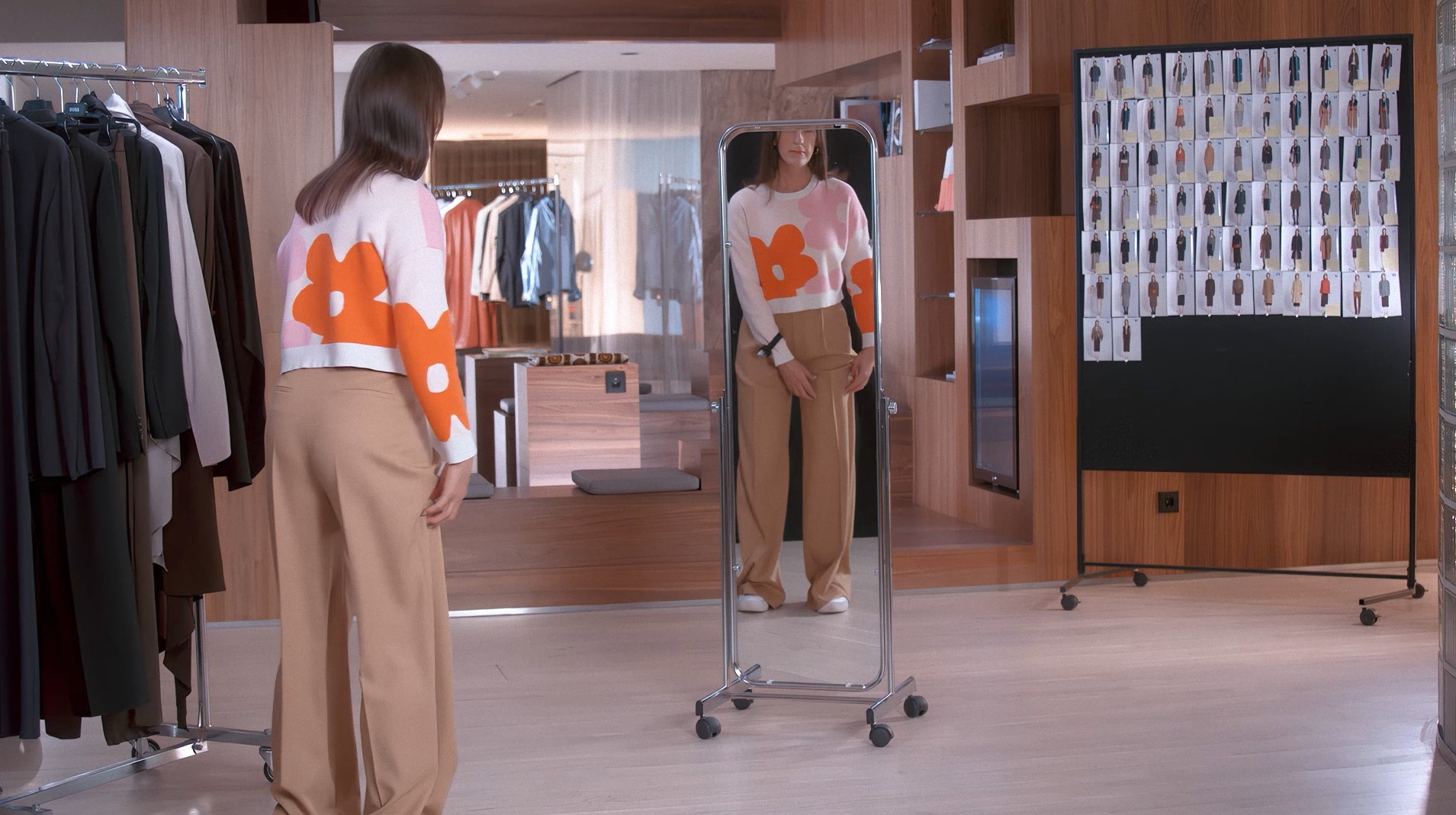Journey to a closed loop: Our circularity strategy
Our Circularity Strategy
Our Circularity Strategy
At HUGO BOSS, we are convinced that the future of the fashion industry needs to be more circular - especially with regard to the conservation of our planet's precious resources. At the same time, we want our customers to enjoy our high-quality products for as long as possible. Therefore, we have already taken the first steps in this direction and have developed a concrete HUGO BOSS Circularity Strategy with the following core components:
- circular products
- circular business models (e.g. repair, resale)
- customer involvement

It all starts with design: our circular products
HUGO BOSS products stand for highest quality and long-lasting design. Meeting our product demands, in terms of circularity, calls for the joint creative potential of employees from a wide range of areas such as design, product development, and sourcing and operations, apart from industry exchange, and collaboration with start-ups. To ensure that the newly developed design strategies for circular products will be realized, HUGO BOSS trained its teams in circular design in collaboration with the circular design agency circular.fashion. This is one option how we can enhance our commitment to reducing the impact of our products (about 19.000 tons of products are sold on an annual basis).
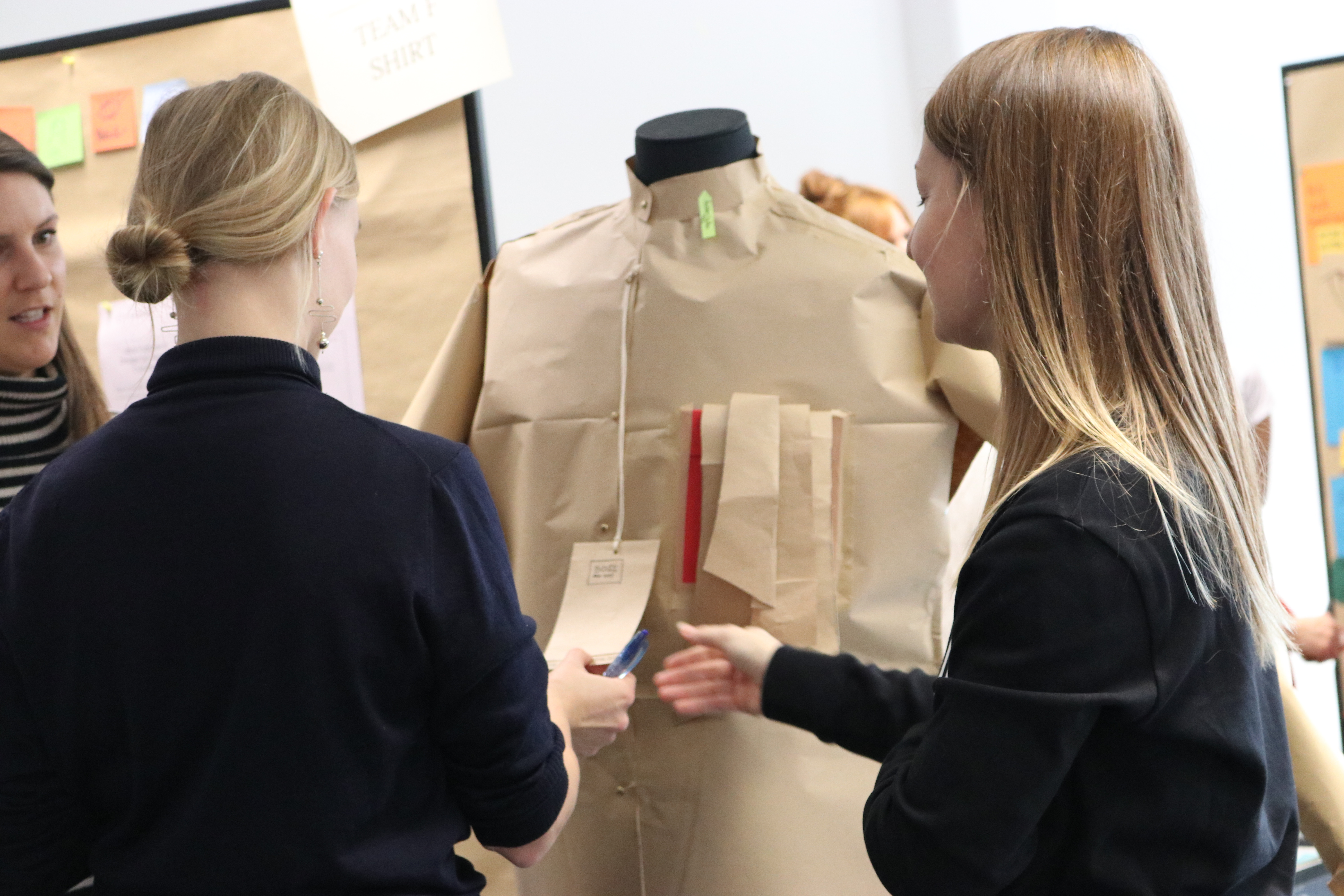
Furthermore, the company has developed an internal guideline for circular products which defines the criteria of a circular product that make a product of our brands BOSS and HUGO circular and takes three main principles into account. The criteria are also part of our Material Strategy document which is published externally.
Our checklist for circular products at HUGO BOSS
-
1. Is the product made from renewable or recycled materials?
The focus is on the use of renewable as well as recycled raw materials. Renewable materials include, for example, cotton, wool and regenerated cellulose fibers such as viscose. For recycled materials, we give preference to pre- and post-consumer textile waste and waste products from other industries.
-
2. Is the product recyclable?
We believe that product recyclability is one of the key enablers of the circular economy. This why we reduce our use of material mixes in our CIRCULAR products to make them easier to recycle.
-
3. Is the product designed for longevity?
As a premium brand, longevity is a key pillar for our CIRCULAR products. Like all HUGO BOSS products, our CIRCULAR products undergo testing to meet high quality standards, ensuring durability and longevity. Additionally, our designers and product experts seek innovative ways to extend the lifespan and improve reparability of the products.
Open and closed loop recyling
Recycled and recyclable materials are an important part of our circularity strategy. Two different recycling methods can be used:
1. Recycled closed loop
Recycled closed loop materials are those that originate from recycled textiles. For us both pre- and post-consumer textile waste are valuable material sources, as our aim is to avoid waste wherever possible. In 2023, in this way, we managed to use 8 tonnes of recycled post-consumer textile waste in our products.
2. Recycled open loop
Recycled open loop materials are those that are made using waste from other industries, such as agricultural waste and industrial waste.
Our circular business models as part of our sustainability strategy
Circular business models centered on resale and repair allow products to be kept in circulation for the longest possible time. At HUGO BOSS, we have therefore already tested these services in pilot projects and are currently offering Resale and Repair for our customers. To make it as easy as possible for our customers and interested consumers to sell and buy pre-loved fashion, we are collaborating with Sellpy - one of the biggest re-commerce platforms for fashion in Europe. To order your free of charge trade-in kit, please visit our online store. Customers being part of the HUGO BOSS loyalty program in addition have the option to use our repair service for free. In 2024, we helped a total of 458 kilograms of products extend their lifetime through methods such as resale and repair.
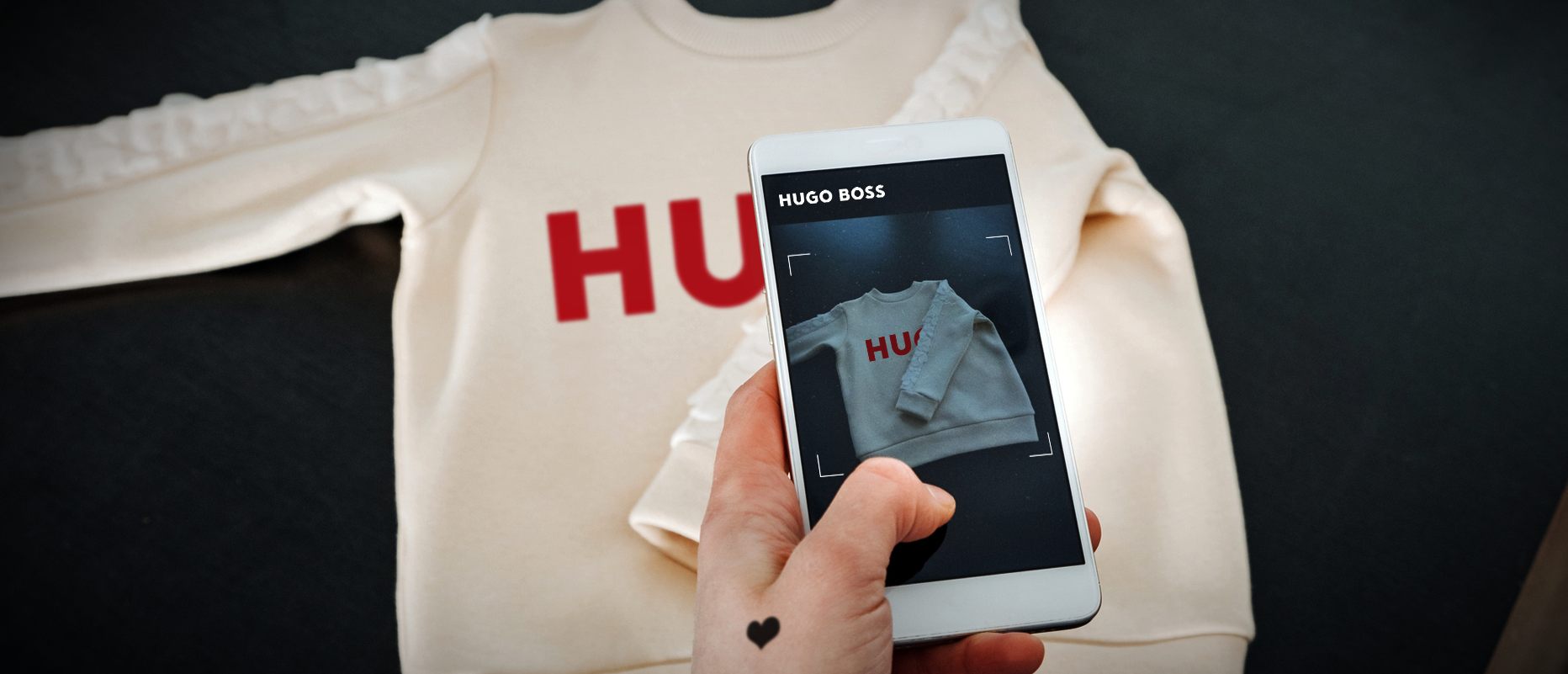
How we engage our customers
It is close to our hearts to make our customers aware of the need for more sustainable handling of and, thus, for longevity in their products. In this way, resources can also be conserved in the long term. This is why we offer our stakeholders like customers a care guide and how-to-repair-videos in our online store.
Resource conservation in design, packaging and cutting
We already do our best to handle resources responsibly in the product packaging area and, for example, use recycled materials or reduce packaging weight and single-use plastic. By 2030, we aim to reduce single-use plastic per item by 30% compared to 2023 (excluding hangers and suit bags).
HUGO BOSS also strives to minimize production waste. To achieve this, we use intelligent cutting programs that calculate the most efficient distribution of product components across the fabric in order to waste as little as possible. Production waste can’t be prevented completely, however, so we try to make sensible use of it – for example, by offering giveaways such as key rings and wallets made from leather-trimming waste.
